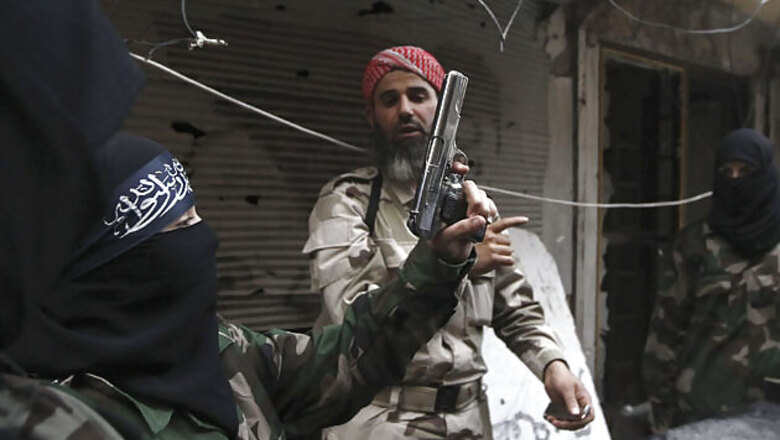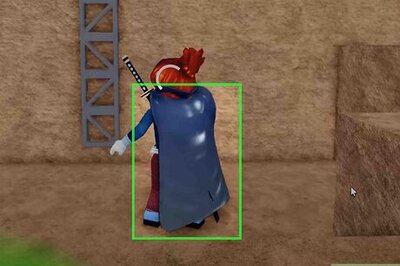
views
More than 100,000 people have been killed since the start of Syria's conflict over two years ago, an activist group said on Wednesday.
The Britain-based Syrian Observatory for Human Rights, which has been tracking the death toll in the conflict through a network of activists in Syria, released its death toll at a time when hopes for a negotiated settlement to end the civil war fade.
It said a total of 100,191 had died over the 27 months of the conflict. Of those, 36,661 are civilians, the group said.
On the government side, 25,407 are members of President Bashar Assad's armed forces, 17,311 pro-government fighters and 169 militants from Lebanon's Hezbollah, who have fought alongside army troops.
Deaths among Assad's opponents included 13,539 rebels, 2,015 army defectors and 2,518 foreign fighters battling against the regime.
Entry of the foreign media into Syria is severely restricted and few reports from the fighting can be independently verified.
Earlier this month, the U.N. put the number of those killed in the conflict at 93,000 between March 2011 when the crisis started and end of April this year.
The government has not released death tolls. The state media published the names of the government's dead in the first months of the crisis, but then stopped publishing its losses after the opposition became an armed insurgency.
Syria's conflict began as peaceful protests against Assad's rule. It gradually became an armed conflict after the Assad's regime used the army to crackdown on dissent and some opposition supporters took up weapons to fight government troops.
Even the most modest international efforts to end the Syrian conflict have failed. U.N.'s special envoy to Syria, Lakhdar Brahimi, told reporters on Tuesday that an international peace conference proposed by Russia and the U.S. will not take place until later in the summer, partly because of opposition disarray.
The fighting has increasingly been taking sectarian overtones. Sunni Muslims dominate the rebel ranks while Assad's regime is dominated by Alawites, an offshoot sect of Shiite Islam.
Sunni-majority Saudi Arabia is Washington's key ally and a foe of Iran. Tehran, a Shiite powerhouse, supports Assad.
Saudi Arabia is sending lethal aid to the rebels. The United States also said it will provide arms to the opposition despite the Obama administration's reluctance to send heavier weapons for fear they might end up in the hands of al-Qaida-affiliated groups. Russia, Assad's staunch supporter, has been providing his army with weapons.
In Damascus, Syrian Information Minister Omran al-Zoubi lashed out at Saudi Arabia, accusing the Gulf kingdom of backing "terrorists" after Riyadh condemned Damascus for enlisting fighters from its Lebanese ally in its struggle with rebels.
Damascus has previously blamed the Sunni Gulf states, who along with the United States and its European allies back the Syrian opposition, for the civil war.
The remarks by al-Zoubi were carried late Tuesday by the state agency SANA after Saudi Foreign Minister Prince Saud al-Faisal met with U.S. Secretary of State John Kerry in Jiddah and condemned Assad for bolstering his army with fighters from Hezbollah. Prince Saud charged that Syria faces a "foreign invasion."
Al-Zoubi fired back, saying Saudi diplomats have blood on their hands and are "trembling in fear of the victories of the Syrian army."
The Syrian military with Hezbollah's help captured the central town of Qusair earlier this month and says it is building on the victory to attack rebel-held areas elsewhere.

















Comments
0 comment